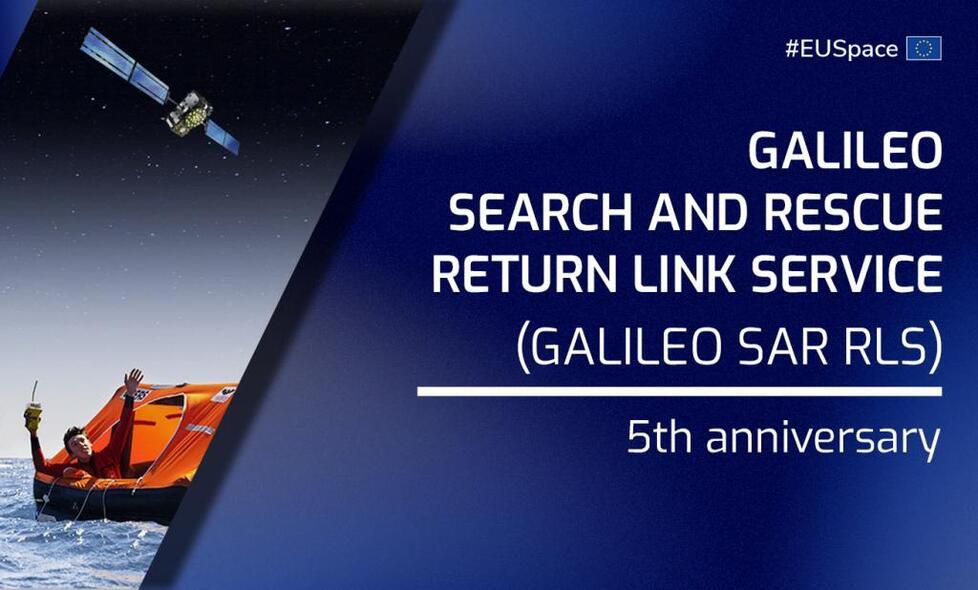Galileo SAR Return Link Service celebrates five years of saving lives

Can you believe it? The Galileo Search and Rescue Return Link Service (Galileo SAR RLS) is celebrating five years of service – and thousands of lives saved!
As highlighted by Commissioner Kubilius at the European Space Conference last week, Galileo helps save 2,000 lives every year, reinforcing its impact as a key component of space-based emergency services.
Launched back in 2020, the RLS is a groundbreaking service provided exclusively by Galileo adding a return message to the Galileo Search and Rescue Service (SAR) replying to the SOS transmission of compatible beacons. The Galileo SAR contributes to world-wide life-saving efforts by swiftly relaying radio beacon distress signals to relevant authorities by means of dedicated payloads onboard Galileo satellites, supported by a distributed ground segment strategically deployed across Europe.
The SAR RLS takes this one step further, sending back a message to SAR users through the Galileo Navigation Signal in Space resulting in an automatic acknowledgment of distress transmission. This visual confirmation affirms that the distress signal has been pinpointed, and first responders’ crews informed.
“EUSPA is particularly proud of the fact that Galileo is the only GNSS constellation to offer such an important service – a service that has proven to increase survival rates by giving an important psychological boost to people in distress,” says EUSPA Executive Director Rodrigo da Costa.
Not only is the RLS service unique, but it is also extremely dependable. In fact, continuous monitoring of the Galileo SAR and the Return Link Service confirmed that the service has been available 99.99% of the time, and that the Galileo RLS system takes an average of 37 seconds to deliver the automatic acknowledgement to the activated beacons as observed by the Galileo Reference Beacons. Both performance parameters are significantly better than their target values of 95% and 15 minutes respectively.
Fully integrated into the COSPAS-SARSAT system
The free-of-charge SAR RLS service offers global coverage at sea, in the mountains, across the desert and in urban areas. To leverage the service, all one needs is a COSPAS-SARSAT RLS compatible beacon.
The Galileo SAR service is fully integrated into the Cospas-Sarsat system, an international satellite-based SAR distress alert detection and information distribution system. It is estimated that, thanks to the full contribution of the Galileo SAR, Cospas-Sarsat can save more than 3,000 lives a year.
“Five years is an important milestone, but the more important number is the thousands of lives the Galileo SAR RLS service has contributed to save and the many more it will help save in the years ahead,” concludes da Costa.
Media note: This feature can be republished without charge provided the European Union Agency for the Space Programme (EUSPA) is acknowledged as the source at the top or the bottom of the story. You must request permission before you use any of the photographs on the site. If you republish, we would be grateful if you could link back to the EUSPA website (http://www.euspa.europa.eu).